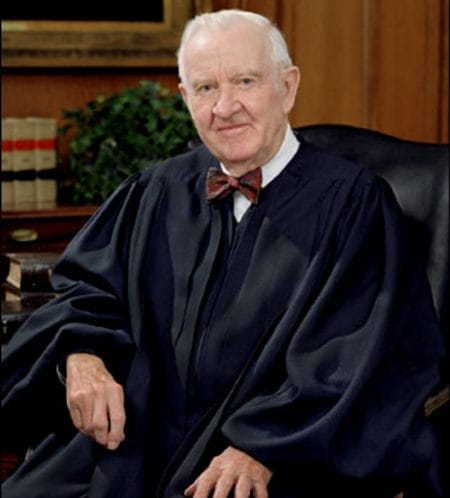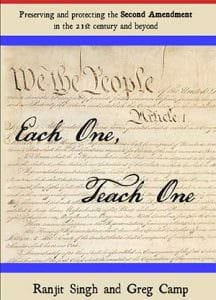Opinion

Fayetteville, AR – -(Ammoland.com)- The list of nobodies, the imaginary people who are the only ones coming to take our guns, just got a prominent addition in the person of John Paul Stevens, former associate justice of the United States Supreme Court.
Writing in The New York Times in response to the March for Our Lives last weekend, he states that repealing the Second Amendment is a “simple but dramatic action [that] would move Saturday’s marchers closer to their objective than any other possible reform. It would eliminate the only legal rule that protects sellers of firearms in the United States.”
To be clear, he does not call for an immediate ban on all or even any firearms in that writing, but I do have to ask what he believes can be accomplished in the absence of constitutional protections for owning and carrying guns that can’t be done now.
This is also not the first time he has taken a position like the one above. In his book, Six Amendments: How and Why We Should Change the Constitution, he argues that we should rewrite the Second Amendment to say, “the right of the people to keep and bear arms when serving in the militia shall not be infringed.”
What good that would do is something I’ll leave to him to explain, since there isn’t much of a movement to disarm our armed forces, but his consistent stance on this subject makes “retired” an important modifier of his judicial career.
The Times article has an image comparing an eighteenth century firearm with a modern weapon, and while the caption declares the older gun to be a rifle, it looks more like a Brown Bess musket, but let’s not quibble.

In any case, technology has advanced. That should be obvious, since I read the article and am responding to it on the Internet, a means of communication that was also not available to the framers of our Constitution. I have read that document, and while I cannot claim the expertise that Stevens has earned nor the certainty of the editors of the Times, I have not located the expiration date in the Bill of Rights. The importation of slaves lost legal protection in 1808, and once the Constitution was ratified, anyone born after that date had to have been born a citizen to be eligible to be president, but rights, like the flow of time, have a unidirectional character – once they are protected, that protection doesn’t go away.
Unless, of course, we pass an amendment, and Stevens and his supporters should think carefully about that. He clearly doesn’t hold the same view that the framers had that rights are inherent, but those of us who do must recognize that the free exercise of rights can be curtailed, even while the rights themselves remain. What people who want to repeal the Second Amendment must understand is that the First Amendment became law at the same time. If we start tampering with the core enumerations of rights, how long will it be until as a nation we decide that, for example, criticizing the president shouldn’t be legal or that advocating for gun control no longer enjoys the status of protected speech?
People who want stricter gun laws may accuse me here of committing a slippery slope fallacy, but the process for curtailing the one set of rights is as easy as it is for the other set, and given the political mood in the nation, I wouldn’t like to place a bet on which would be the more likely to pass.
All things considered, it’s best if we leave the protections of rights in place.

About Greg Camp
Greg Camp has taught English composition and literature since 1998 and is the author of six books, including a western, The Willing Spirit, and Each One, Teach One, with Ranjit Singh on gun politics in America. His books can be found on Amazon. He tweets @gregcampnc.
